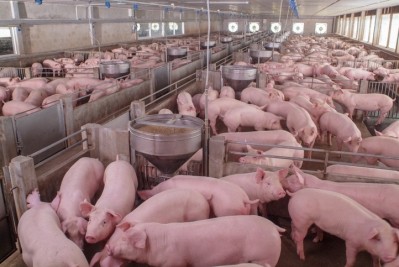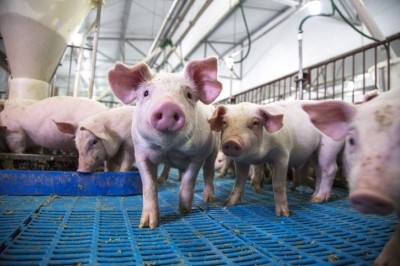Copper beads may offer a glimpse into the future of precision nutrition in pig farming

Researchers from Texas Tech University (TTU) claim that hydrogel beads represent a promising strategy for delivering copper supplements to pigs. The technology can mitigate the risks associated with excessive copper intake, they maintain.
Lead author Dr Alexandra Calle, a microbiologist, highlights the slow release of copper from these beads. “Instead of just being consumed and absorbed in the stomach, it remains for a longer period in the animal’s GI tract.”
In a paper published in Microbiology Spectrum, findings from research the TTU scientists carried out show that copper beads influence the microbial makeup in a pig’s gut, but the researchers acknowledge that more work is needed to optimize the benefits.
Lab and pig tests
In laboratory settings, Calle and her team observed significant reductions in Salmonella populations upon exposure to the copper bead solution. Those results prompted further investigation into the effects of copper beads on gut microbiota in live pigs.
In a controlled experiment involving 48 six-month old finishing pigs, half receiving feed with added copper beads and the other half receiving regular feed, the researchers collected fecal samples over a three-week period. Analysis revealed a substantial increase in copper levels in feces among the group receiving copper bead-supplemented feed.
After the pigs stopped receiving copper, their levels of the metal returned to baseline. Those measurements confirmed that the beads had effectively delivered the mineral.
Microbial shifts
Additionally, shifts in microbial populations were observed, but with higher levels of Enterobacteriaceae and lower levels of lactic acid bacteria in the experimental group. Although unexpected, these findings underscore the need for deeper understanding of how copper impacts gut microbiota dynamics, say the team.
“Even though our desired target was to reduce levels of Enterobacteriaceae, the opposite happened,” Calle said. She suspects that after the copper diminished levels of the lactic acid bacteria, the Enterobacteriaceae had an easier time colonizing the gut.
Despite those findings, though, they’re not discouraged. “This was our first test of this project,” Calle said.
The next step is to use the beads to target specific, pathogenic microbes and optimize the gut health benefits, she explained.
Source: Microbiology Spectrum
Authors: Fernandez M, Thompson J, Calle A
Title: Novel feed additive delivers antimicrobial copper and influences fecal microbiota in pigs.













